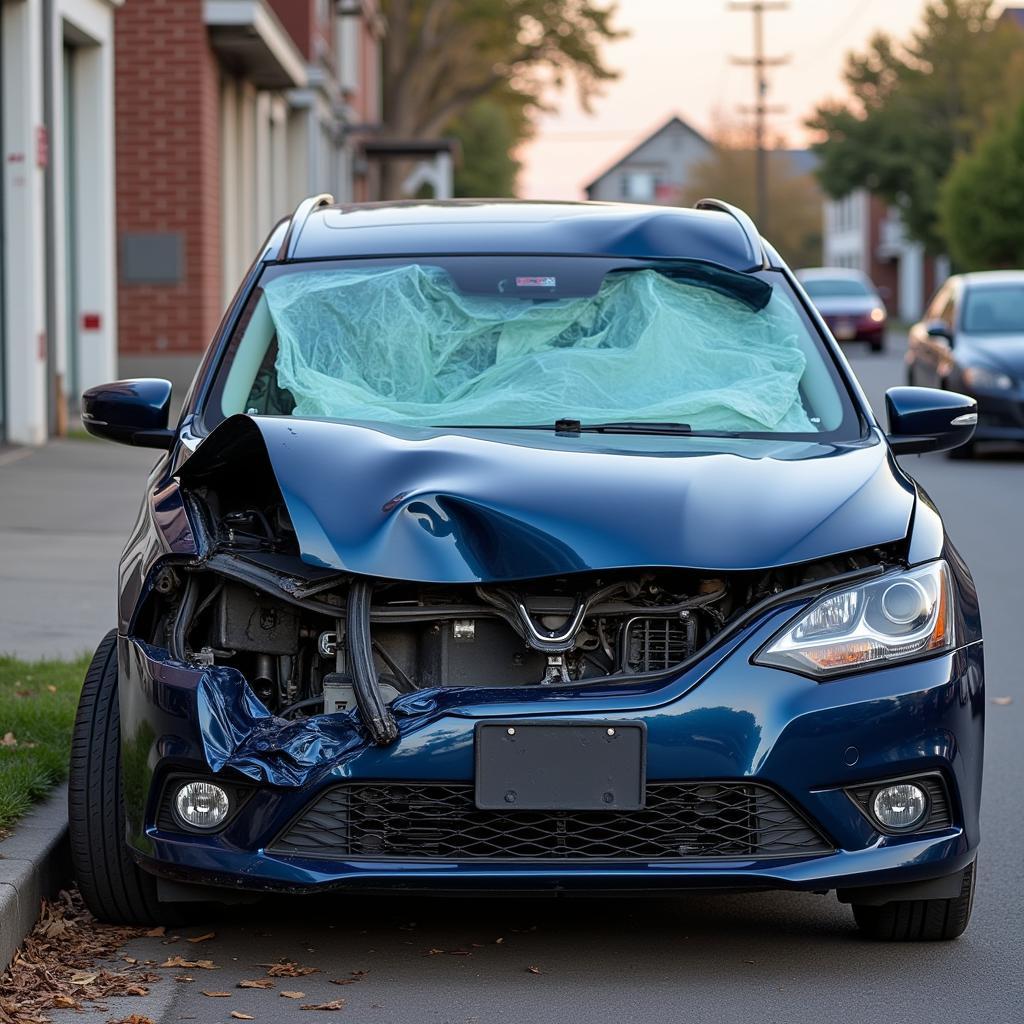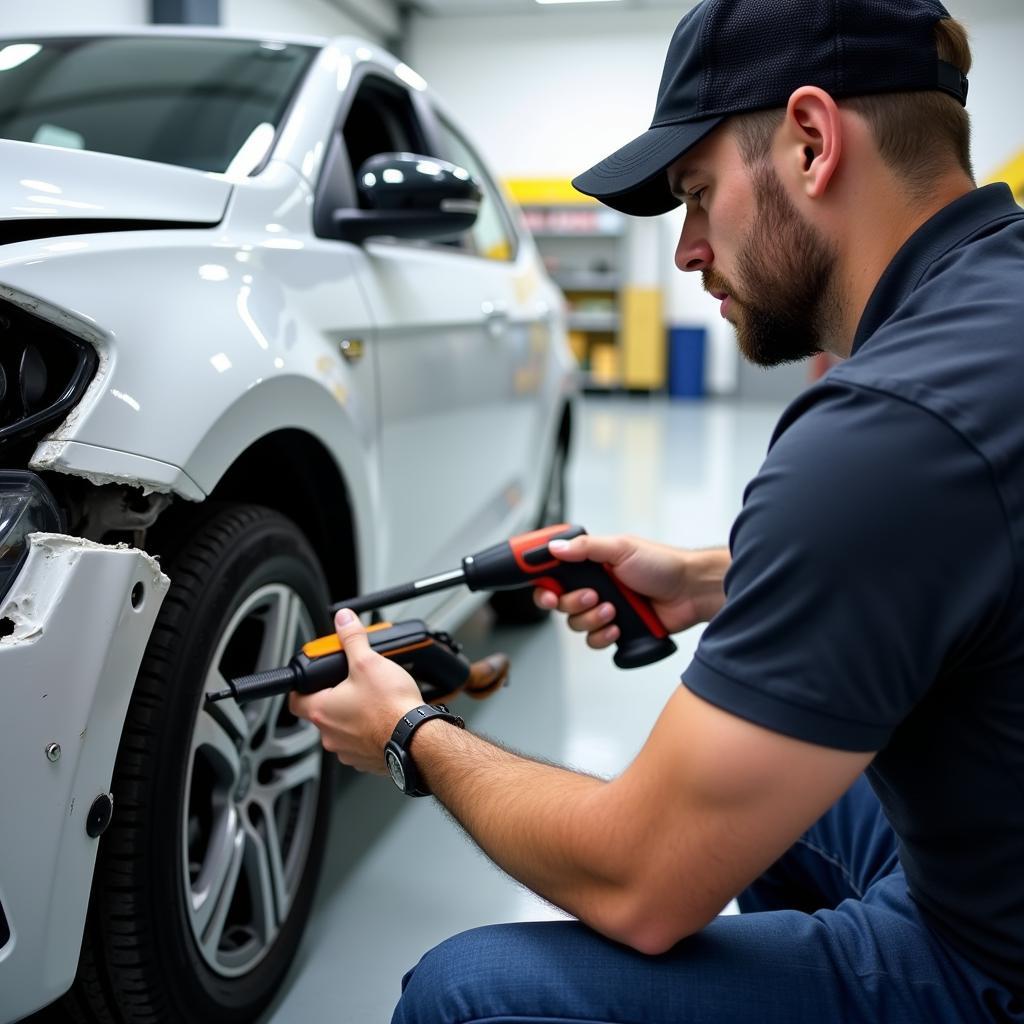Knowing whether your car is totaled or repairable after an accident can be stressful and confusing. This guide will help you understand the process, the key factors involved, and how to make informed decisions about your vehicle’s future. We’ll explore everything from insurance appraisals to repair estimates, empowering you to navigate this challenging situation.
Understanding When a Car is Considered “Totaled”
A car is generally considered “totaled” (or a “total loss”) when the cost to repair the damage exceeds a certain percentage of the vehicle’s actual cash value (ACV). This percentage varies by state and insurance company, typically ranging from 50% to 100%. The ACV is the market value of your car before the accident, taking into account factors like age, mileage, and condition. Even if your car is drivable after an accident, it can still be deemed a total loss if the repair costs are high enough.
Key Factors Determining if Your Car is Totaled
Several factors play a crucial role in determining whether your car is totaled. These include:
- Extent of the Damage: Obvious factors like frame damage, airbag deployment, and flood damage significantly influence the repair costs and can lead to a total loss declaration.
- Vehicle’s Age and Mileage: Older vehicles with high mileage have a lower ACV. Even relatively minor damage can result in a total loss if the repair cost approaches or exceeds the car’s pre-accident value.
- State Laws and Insurance Policies: Each state has its own regulations regarding totaled vehicles, and insurance policies differ in their specific criteria. Understanding your policy’s terms and your state’s laws is essential.
- Hidden Damage: Sometimes, damage isn’t readily apparent. A thorough inspection by a qualified mechanic is crucial to uncover hidden issues that could inflate repair costs.
 Totaled Car After Accident
Totaled Car After Accident
What Happens After Your Car is Declared a Total Loss?
Once your insurance company declares your car a total loss, they will offer you a settlement based on the ACV. You can negotiate this settlement, providing evidence of your car’s value through resources like Kelley Blue Book or NADA Guides. After accepting the settlement, you can choose to:
- Accept the payout and relinquish the vehicle to the insurance company. They will then sell the salvaged vehicle.
- Retain the salvaged vehicle and accept a reduced payout. This option allows you to keep the car, often for parts or to repair yourself, although it will likely have a salvage title.
How to Determine if Your Car is Repairable
If the damage seems less severe, your car might be repairable. Obtain multiple repair estimates from reputable auto repair shops. Compare these estimates to your car’s ACV. If the repair costs are significantly less than the ACV, repairing your car is likely the better option.
Negotiating with Your Insurance Company
Negotiating with your insurance company is often necessary to receive a fair settlement. Document all communication, keep records of repair estimates and your car’s pre-accident condition, and be prepared to advocate for your vehicle’s value. Remember, the initial offer isn’t always the final offer.
“A common mistake is accepting the first offer without question,” says John Smith, Senior Automotive Appraiser at Acme Appraisal Group. “Research your car’s value thoroughly and be prepared to negotiate a fair settlement based on its pre-accident condition.”
Should I Get a Second Opinion?
Getting a second opinion from an independent appraiser can be beneficial, especially if you disagree with your insurance company’s assessment. An independent appraisal provides an unbiased evaluation of your car’s value and the extent of the damage.
 Independent Car Appraiser
Independent Car Appraiser
Conclusion: Making the Right Decision for Your Situation
Determining whether your car is totaled or repairable requires careful consideration of various factors. Understanding your insurance policy, obtaining multiple repair estimates, and knowing your vehicle’s ACV are crucial steps. By following the advice in this guide, you can navigate this process with confidence and make an informed decision that best suits your needs. Remember to thoroughly research your vehicle’s value and don’t hesitate to negotiate with your insurance company.
FAQ
- What is a salvage title?
- How do I determine my car’s actual cash value (ACV)?
- Can I keep my totaled car?
- What if I disagree with the insurance company’s appraisal?
- How do I find a reputable auto repair shop?
- What is diminished value, and how does it affect my car’s value after repairs?
- Can I negotiate the settlement offer from my insurance company?
“Don’t be afraid to ask questions,” advises Maria Garcia, Lead Claims Adjuster at Global Insurance. “Understanding your policy and your rights is crucial in this process.”
Need assistance? Contact us via WhatsApp: +1(641)206-8880, Email: [email protected]. We have a 24/7 customer support team.

Leave a Reply